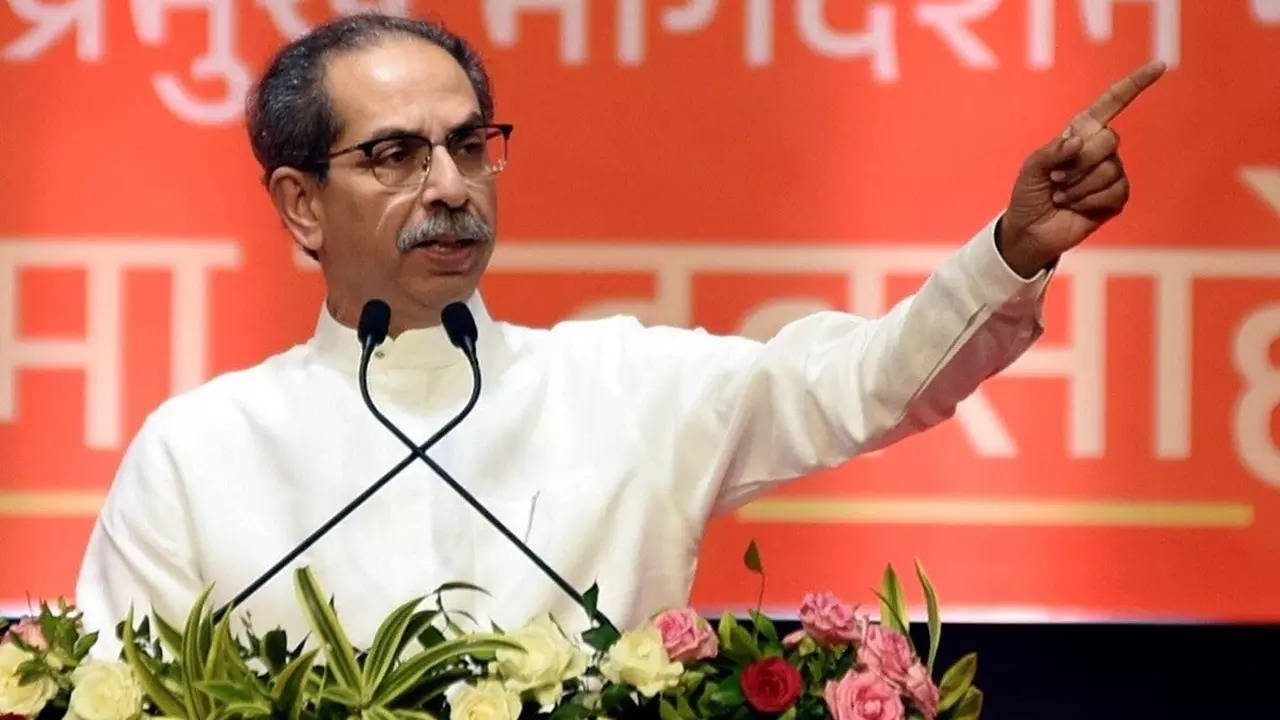 |
|
The recent Maharashtra Assembly elections have sent shockwaves through the Maha Vikas Aghadi (MVA) alliance, leading to speculation about its imminent collapse. Sources indicate that Uddhav Thackeray's Shiv Sena (UBT) faction is seriously considering withdrawing from the coalition. This decision follows a disappointing electoral performance for the MVA, which fell far short of expectations. The Shiv Sena (UBT) secured only 20 seats, the Congress 16, and the NCP-SP a mere 10, a stark contrast to their performance in the previous Lok Sabha elections. This poor showing has fueled internal disagreements and calls for a reevaluation of the alliance's strategy and future direction. The internal discussions within the Uddhav Thackeray camp highlight the growing unease and the possibility of a significant shift in Maharashtra's political landscape.
The contrasting performance of the ruling Mahayuti alliance underscores the MVA's struggles. The BJP secured a commanding 132 seats, while Eknath Shinde's faction of the Shiv Sena won 57, and Ajit Pawar's NCP faction added another 41. This decisive victory for the Mahayuti came as a surprise to the MVA, who had anticipated a much closer contest. The disparity between the MVA's performance in the Assembly and Lok Sabha elections is particularly striking. In the parliamentary elections, the INDIA bloc, which includes the MVA, won 30 seats compared to the BJP-led NDA's 17. This suggests that the MVA's electoral strategy failed to translate effectively from national to state-level elections. This significant discrepancy warrants a thorough analysis of their campaign strategies, voter outreach, and the overall political climate in Maharashtra.
The history of the MVA and its current predicament are intricately linked to the power struggles within the Shiv Sena. Originally formed in 2019 after the Shiv Sena parted ways with the BJP, the alliance brought together ideologically disparate parties – the Shiv Sena, Congress, and NCP – under Uddhav Thackeray's leadership. This alliance, however, proved fragile. In June 2022, Eknath Shinde's rebellion, supported by a significant number of MLAs, led to the collapse of the MVA government. Shinde subsequently allied with the BJP, forming a new government with himself as Chief Minister and Devendra Fadnavis as Deputy Chief Minister. The subsequent entry of Ajit Pawar and a faction of the NCP into the Mahayuti government further solidified the BJP's dominance and weakened the MVA's position. The current situation reflects the lingering consequences of these internal conflicts and the changing political dynamics within the state.
The potential departure of Uddhav Thackeray's Shiv Sena from the MVA would have significant ramifications for the state's politics. It could lead to a realignment of political forces, further consolidating the BJP's power. The Congress and NCP would likely be forced to reassess their strategies and consider alternative alliances. The future of the MVA, already weakened by electoral setbacks and internal divisions, hangs precariously in the balance. The ongoing discussions within the Uddhav Thackeray camp indicate a willingness to explore new political avenues, potentially signaling the end of an era for this once-powerful coalition. The coming weeks will be crucial in determining the future of Maharashtra's political landscape and the impact of this potential realignment on the broader opposition forces in India. The implications extend beyond the state's borders, reflecting broader national political trends and the challenges faced by opposition parties in their efforts to counter the BJP’s dominance.
The reasons for the MVA's poor performance remain a subject of intense debate. Several factors may have contributed to this outcome, including internal disagreements within the coalition, a lack of a clear and unifying agenda, ineffective campaign strategies, and possibly a shift in voter sentiment. The BJP's aggressive campaigning and effective use of social media also played a significant role. The post-election analysis will be critical in understanding the underlying causes of the MVA's defeat. It will also inform strategic decisions regarding the future of the remaining components of the alliance and their capacity to remain a potent opposition force in the state. The political fallout from this election will likely shape Maharashtra's political discourse for the foreseeable future. The uncertainty surrounding the Shiv Sena's next move adds another layer of complexity to an already volatile political environment.
Source: Uddhav Thackeray's Shiv Sena (UBT) Likely To Quit MVA? BIG Update On Maharashtra Politics
